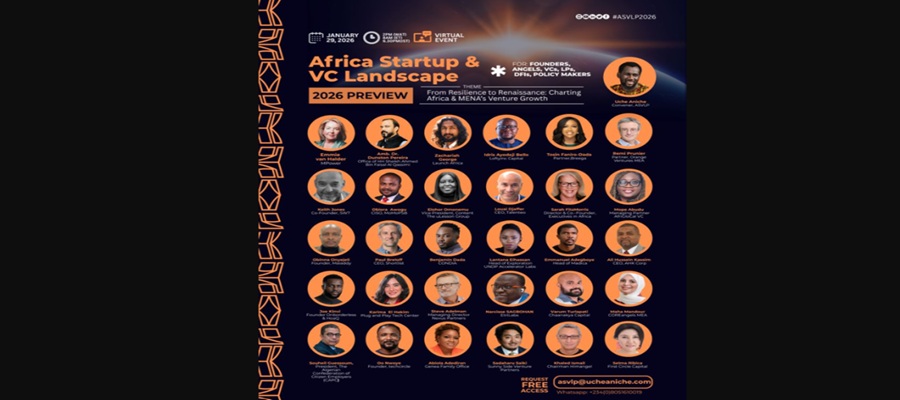Telecom
Lawmakers, Telcos in Heated Debate over Kidnapping, Phone Related Crimes

Some federal lawmakers, yesterday, exchanged heated arguments with telecom operators in the country over the roles they are supposed to play to stem the tide of incessant kidnapping and other phone-related crimes in the country.

The lawmakers said the telcos were not doing enough to track kidnappers, despite the number of calls they make to victims’ families demanding ransom.
However, the telcos swifty responded that the lawmakers were mistaking them for security agencies, instead of the telecommunications services providers they were, clarifying that their duties were to provide telecom services to their subscribers and not to catch criminals.
They however, clarified that where and whenever the security agencies had needed their support or services in information that would lead to locating or arresting kidnappers and other criminals, who perpetrated crimes through mobile phones, they had gladly and freely rendered result-oriented support.
The scene played out at the first day of the two-day colloquium on the Nigerian Communications Act, NCA 2003, at Sheraton Hotels, Ikeja, Lagos, with the theme “22 years after: Reassessing the Nigerian Communications Act –Challenges, Opportunities, and Future Directions for a Digital Nigeria”
Ben Etanabene, member of House of Representatives, representing Okpe, Sapele and Uvwie federal constituency, Delta State, was the first to throw the salvo, wondering why despite all the money and time expended in registering phone lines in the country, kidnappers were still operating freely without telcos tracking them.
“Every part of this country, kidnappers are on the rampage, kidnapping and making demands for ransom. Why are the telecom operators not tracking and helping in arresting them before they wreak havoc?” he queried.
Etanabene, who claimed to have been a victim of kidnappers in the past, queried why the telcos and the NCC couldn’t provide geo-location services that would ensure kidnappers were located and nabbed before they carried out their actions, even when all over the world, technology deployment stemmed same crime.
Corroborating him, Ayodele Festus, another member of House of Representatives, who represents Ile-Oluji in Ondo State, said the telcos should improve their services.
He alleged that the telcos were smiling to the bank at the expense of subscribers, who hardly finish a call without it dropping at least five times.
He alleged that there was an increase in customer dissatisfaction because, according to him, “millions of subscribers are deeply frustrated.”
Also, Mr Moshood Olawale, yet another member representing Lagos Mainland in the House of Representatives, alleged that while it was expected that the Nigerian Communications Commission (NCC), and the telcos collaborated for the progress of the sector, what appeared to be playing out was connivance, explaining why telecom tariff goes up instead of coming down.
However, in a swift reaction, Gbenga Adebayo, chairman of Association of Licenced Telecoms Operators of Nigeria (ALTON), punctured the claims of the lawmakers, saying operators were doing a lot to stem phone-related crimes in the country.
Adebayo said: “In the first instance, we are clearly telecom services providers and do not have the mandate to run around arresting criminals.
“Again, kidnappers usually don’t use their own numbers to call families of their kidnapped victims for ransom. Rather, they use the phone of the kidnapped, while moving from one point to another.
“Then, also remember that there is a privacy law, which gives every subscriber right to privacy until there is a lawful reason to intercept their conversations.
“The worst is that the security agencies have not come to ask for geo-location of event and we refused giving it out. At least, there is Law of Lawful Interception, which gives them right in that regard.’’
Also responding, Tobechukwu Okigbo, Corporate Service Executive, MTN Nigeria, told the lawmakers that in terms of affordability, Nigeria was one of the cheapest country with very low tariff in Africa, meaning that their allegation that Nigerians paid the highest price for telecom services was not based on empirical facts.
He also reminded the lawmakers to consider legislating on telecom infrastructure protection which would nip the cases of theft and incessant fibre cuts and vandalism, in the bud.
On his part, Dr. Aminu Maida, executive vice chairman of NCC, corrected the impression that the commission was conniving with telcos but stressed the importance of collaboration of the two bodies to deliver quality services to Nigerians.
Credit – Vanguard
Telecom
ASVLP 2026: Africa, MENA VCs Gear Up as Tech Funding Hits $4.1bn Rebound

As Africa and MENA’s startup ecosystems transition from post-correction resilience into a new phase of disciplined growth, the Africa Startup & VC Landscape Preview (ASVLP 2026) will convene leading founders, investors, policymakers, and ecosystem builders on January 29, 2026, for its second annual, agenda-setting virtual forum.

Following a challenging global venture cycle, 2025 marked a notable rebound across the African ecosystem, with startups raising an estimated $3.2–$3.3 billion over the full year.
The recovery was accompanied by significant structural shifts: Kenya emerged as the leading destination among Africa’s “Big Four” markets for the first time, while Nigeria recorded a year-on-year funding decline, reflecting changing investor preferences, macroeconomic pressures, and a broader recalibration toward capital efficiency and sustainability.
Sectorally, fintech remained the most funded vertical, while climate & energy, AI-enabled solutions, healthtech, and infrastructure-adjacent businesses gained increasing attention. Across Africa and MENA, development finance institutions (DFIs) and family offices played a more pronounced role in anchoring funds, deploying catalytic capital, and supporting blended-finance structures, reshaping how early-stage and growth capital is mobilized.
ASVLP 2026 is designed to translate these data points into forward-looking strategy.
The forum will bring together venture capitalists, angel investors, LPs, DFIs, family offices, founders, corporate leaders, and regulators from Africa, MENA, Europe, and North America to assess 2025 outcomes and chart priorities for 2026.
The program will feature keynotes, fireside chats, panels, and deep-dive roundtables, including discussions on:
· The 2026 Africa & MENA FinTech Landscape, focusing on security, profitability, regulation, and growth frontiers
· Emerging Fund Managers, capital formation, and LP alignment
· Talent, operator depth, and institutional capacity as constraints to scale
· Regulatory evolution and cross-border market integration
A major highlight of ASVLP 2026 will be the Final DealRoom Pitch Session, where a curated group of high-potential startups will present to an experienced panel of investors.
• Founders can apply to pitch via: bit.ly/ASVLP-DR-Founders
• Investors seeking DealRoom access can request entry via: bit.ly/ASVLP-DR-Investors
Confirmed speakers for ASVLP 2026 include Khaled Ismail (HIMangel), Idris Ayodeji Bello (LoftyInc Capital), Zachariah George (Launch Africa), Tosin Faniro-Dada (Breega), Selma Ribica (FirstCircle Capital), Maha Mandour (COREangels MEA), Joe Kinvi (Borderless), Remi Prunier (Orange Ventures MEA), Karima El Hakim (Plug and Play Tech Center), Souheil Guessoum (President, The Confederation of Citizen Employers – Algeria (CAPC)), Remi Prunier (Partner, Orange Ventures, MEA), Maha Mandour (COREAngels MEA), Ali Hussein (President, Kenyan FinTech Association), Patrick Okebu (CIO, Interswitch Group) among other leading voices shaping capital, policy, and innovation across the region.
“The conversation has shifted,” said Uche Aniche, Convener of ASVLP. “It’s no longer about whether capital will return to Africa and MENA, but what kind of capital, deployed with what discipline, and in service of which long-term outcomes. ASVLP exists to help the ecosystem make sense of that transition.”
Participation in ASVLP 2026 is free but strictly by invitation.
Interested participants are encouraged to repost the official announcement on LinkedIn and comment #ASVLP2026 to receive a private registration link. They could also email [email protected] and request invite.
Telecom
TikTok, Instagram Blamed in US Youth Suicide Lawsuit

Major social media giants Meta Platforms, TikTok and Alphabet’s YouTube will face a landmark jury trial this week in Los Angeles County Superior Court over allegations that their addictive designs have fuelled a youth mental health crisis, marking the first such case to reach this stage.

Social Media
The pivotal personal injury lawsuit centres on a 19-year-old Californian woman identified as K.G.M., who claims her childhood immersion in Instagram, Facebook, YouTube and TikTok—engineered with endless scrolls, autoplay videos, notifications and algorithms—sparked severe anxiety, depression and suicidal thoughts.
Dozens of similar suits have surged since 2022 from families, schools and states, accusing the firms of burying internal research on teen harms while prioritising ad revenue through youth-targeted engagement hooks, despite Section 230 protections for user content.
Plaintiffs seek damages and design overhauls, arguing platforms bypassed parents and preyed on vulnerable kids; defendants counter there’s no clinical “social media addiction” diagnosis, no proven causation—kids with issues often use less—and they’ve added safeguards like parental controls and time limits.
Echoing Australia’s under-16 bans, the trial will scrutinise thousands of internal documents, expert testimonies and K.G.M.’s story, potentially expanding tech liability amid debates where studies show complex links, not direct causation, between screen time and disorders like eating issues or self-harm.
A win could mandate warning labels, age gates or algorithm tweaks, reshaping global platforms as U.S. Surgeon General advisories and global scrutiny intensify pressure on Big Tech to prioritise child safety over profits.
Telecom
Meta Tests Paid Subscriptions Across Instagram, Facebook, WhatsApp

Meta is gearing up to trial paid subscription services on Instagram, Facebook, and WhatsApp, aiming to diversify revenue streams beyond advertising while maintaining free core access for all users.

Meta
The subscriptions will offer enhanced tools tailored for everyday users, creators, and businesses, including advanced content creation, sharing, and workflow features distinct from the existing Meta Verified verification program. Unlike a uniform rollout, Meta plans varied testing formats per app to match diverse audiences, experimenting with feature bundles based on user feedback to refine the model.
A key element involves integrating Manus, the autonomous agent firm Meta acquired for $2 billion in December, into these apps alongside its enterprise sales. Manus enables complex task automation with minimal input, with early signs like Instagram shortcuts already spotted by reverse engineer Alessandro Paluzzi.
Video tools feature prominently: Meta’s Vibes short-form video generator in the Meta AI app shifts to freemium, where paid tiers unlock higher monthly creation limits beyond the free baseline. On Instagram, subscriptions could enable unlimited audience lists, non-follower tracking, and anonymous Story views, though specifics for Facebook and WhatsApp remain under wraps.
Drawing from Meta Verified’s 2023 launch—which provides badges, support, and protection mainly for creators—these broader plans target wider appeal amid industry shifts. Ad growth slows against TikTok competition, while Snapchat+ boasts 16 million subscribers at $3.99 monthly, proving demand for value-driven paid perks despite subscription fatigue risks from streaming and storage fees.
Meta will phase tests gradually, prioritizing feedback to shape long-term viability without alienating free users.

 News3 days ago
News3 days agoLIRS to Invoke NTAA to Recover Unpaid Taxes from Bank Accounts, Others

 News3 days ago
News3 days agoAnambra Cuts Monday Pay to Kill Sit-at-Home

 E-Financial3 days ago
E-Financial3 days agoFirst Asset Management Receives Upgraded Ratings from Agusto &Co and DataPro

 E-Financial3 days ago
E-Financial3 days agoNIBSS, Others Flag 13,417 Nigerian Fraudsters on Person of Interest Portal

 General News3 days ago
General News3 days agoNigeria Treats Religious Violence as Attack on State – NSA Ribadu

 E-Financial3 days ago
E-Financial3 days agoCBN Prepares Fresh Debit Card Rules to Improve ATM Services

 E-Financial2 days ago
E-Financial2 days agoCBN Upgrades Licences of Opay, Moniepoint, Kuda, Palmpay, Paga to National Status

 News2 days ago
News2 days agoTech Executives Double Down on AI, Talent and Adaptive Strategies to Lead in the Intelligence Age

























